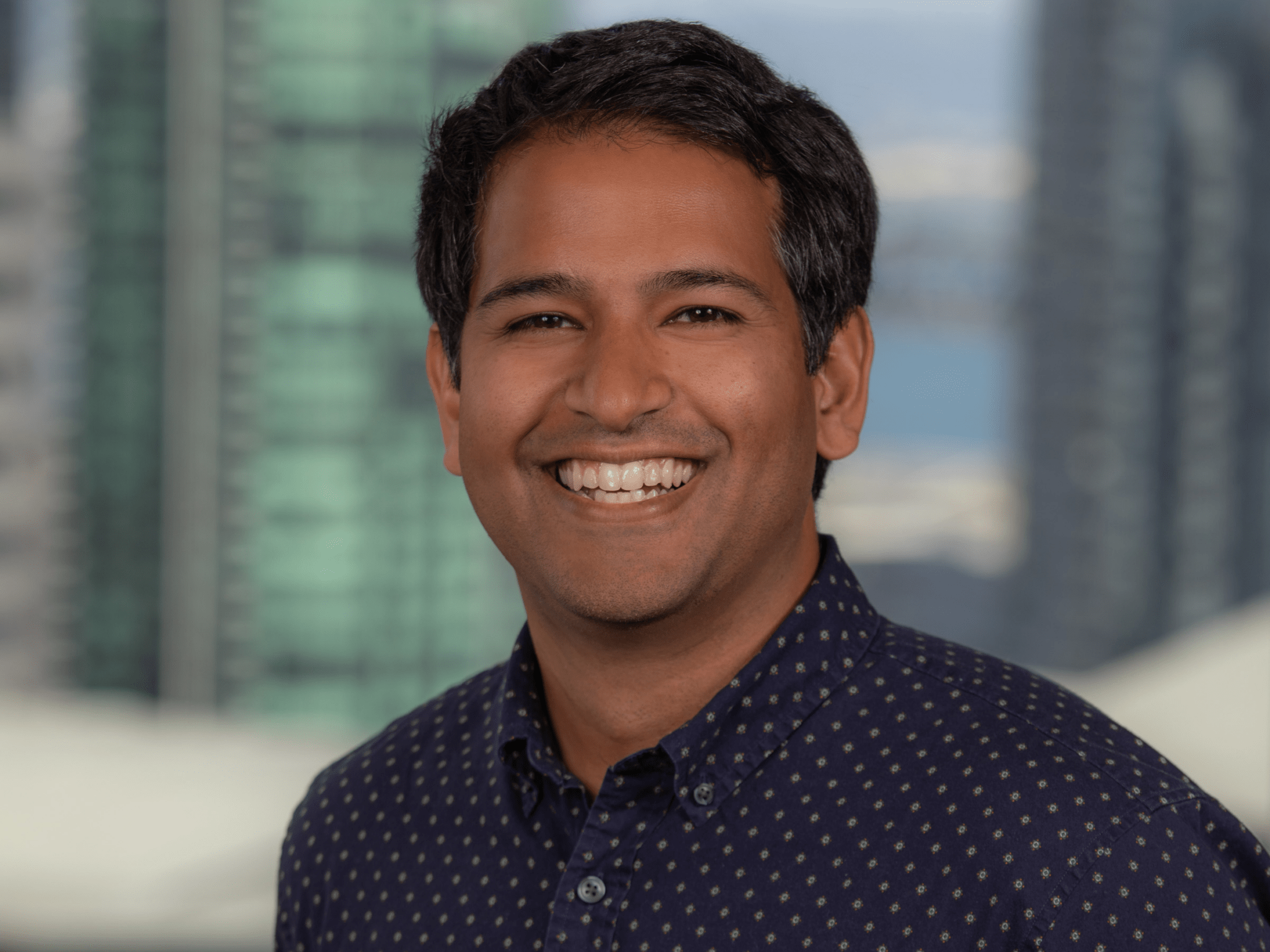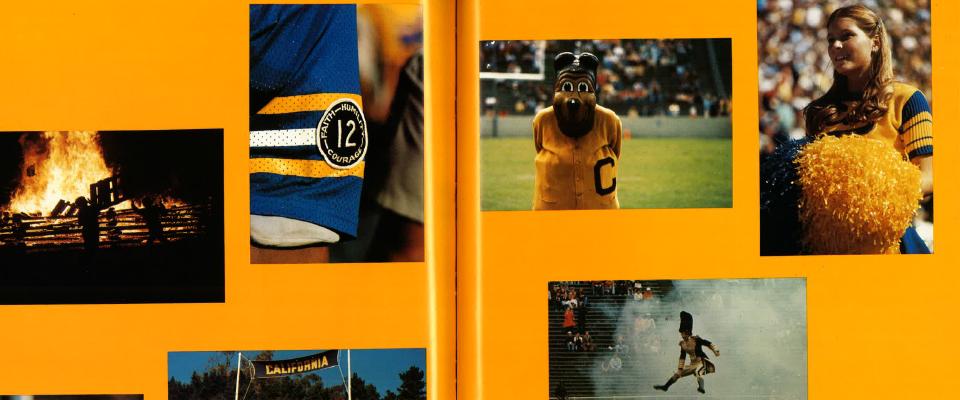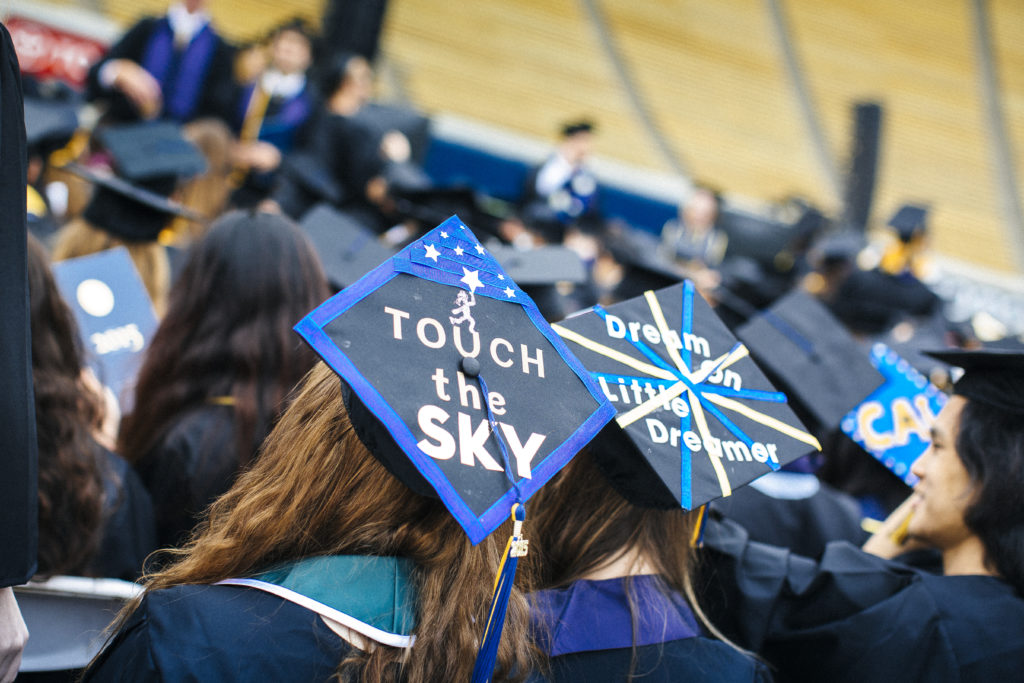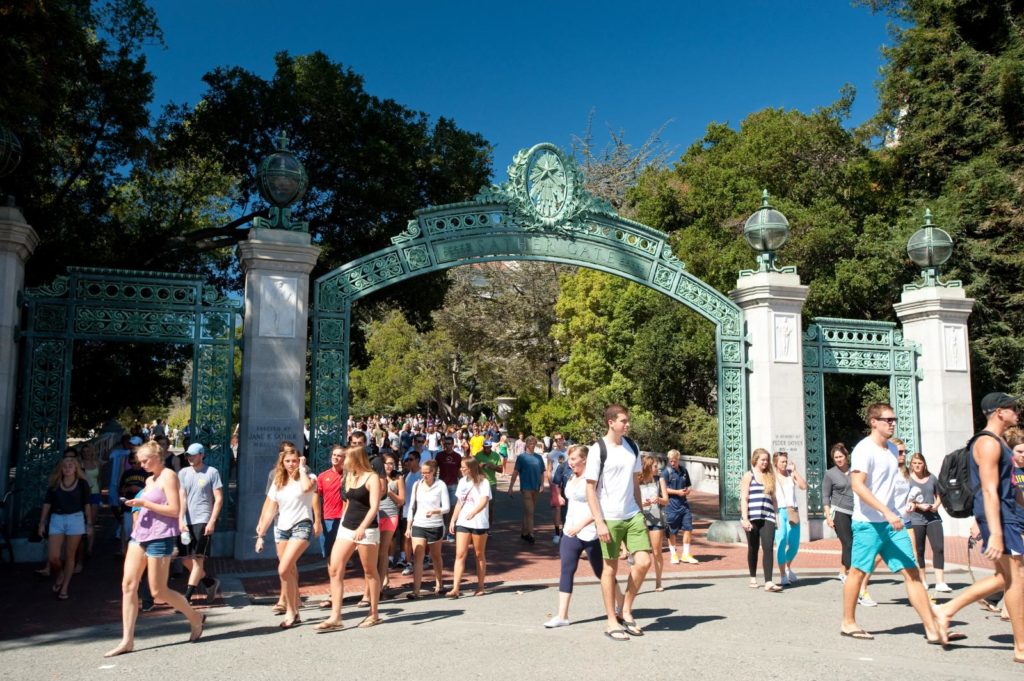When Ryan Waliany ’08 applied to college, he didn’t know 1) that UC Berkeley had “a pretty good computer science program” in addition to a good football team and 2) that the activities he took up during his childhood reflected the attributes of a future entrepreneur. Between juggling work as a teaching assistant and turning down job offers from Google and Microsoft, Waliany found his way through UC Berkeley and found that he learned best by focusing on the academic experience, rather than exam scores.
After discovering his love for learning, Waliany became a serial entrepreneur, tech consultant, and start up advisor. Waliany is passionate about mentoring other entrepreneurs and helping startups with their growth strategies, particularly evaluating their unit economics and finding scalable and repeatable distribution strategies.
Waliany served on the Cal Alumni Association Board of Directors as vice president of finance from 2016–2020.
The Cal Alumni Association spoke with Waliany for its Bears in Business series, where Cal alumni connect their time at UC Berkeley with their professional ventures.
CAA: Where are you from? How did you choose Berkeley?
Ryan Waliany (RW): It’s a funny story. I grew up in Southern California in a town called Valencia, near Magic Mountain. It’s near the In-n-Out off of the I-5, if you’re familiar with that area. I didn’t know much about schools when I was applying. When I was going through the process to apply to the UC system, I asked my dad, “What is UC Berkeley, and should I click the box?” He said, “Yeah, they have a good football team!” Fast forward, I realized that they have a pretty good computer science and engineering program. It worked out great, but I didn’t know that until after I had gotten in.
CAA: What interested you in double majoring in computer science and psychology? Did you know that that was something you were interested in when you were applying to schools?
RW: When I was in school, I strongly desired to learn psychology. Maybe to understand myself, understand other people, and understand how to learn. I studied psychology and realized that I did not need many more credits to get the double major. I was interested in learning a lot of different things. Psychology was very different from computer science, so I wanted to take on the challenge. I felt like it helped broaden my skill set positively. So I’m a big believer in learning diverse skills. Psychology is something that helps me every single day, more than my computer science degree.
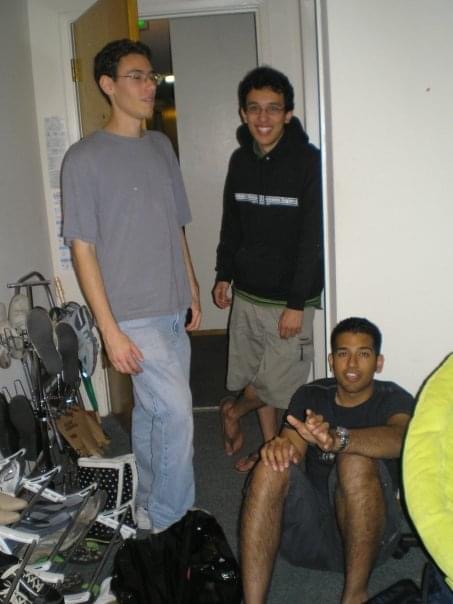
CAA: What do you remember most about your college experience at Berkeley?
RW: (laughing) I was busy studying or doing something productive. Every day, we would get food and hang out with friends. I think we went to Steve’s BBQ almost every day. We would sit on the bench, eat, and chat about random things. I gained way too much weight doing that.
CAA: What did you see yourself doing after graduating from Berkeley? And did you think that you would become an entrepreneur?
RW: I definitely did not think I would be an entrepreneur. Although, if you look at all my childhood activities, people probably would have guessed that I would have been an entrepreneur, but I didn’t know. When I was in college, my dream was to work for Google and Microsoft. And so it happened that I was in this programming contest and did really well my freshman year. Microsoft gave me a scholarship to work there. And Google gave me a job offer for an internship. I ended up not taking either.
I realized over time that it wasn’t so much about working at these companies that was important to me, but about having control. Being able to do something and see the results was very gratifying to me. As an entrepreneur, everything that happens to some degree is based on an action I have taken, so I have a lot of control. That control, whether good or bad, ends up making me happier.
CAA: As a first-year student, how did you realize that your experience at Google or Microsoft would have been limiting in that way? What gave you that insight to say, “No, I’m not going to go down that path,” even though it was something you thought you wanted?
RW: There’s a small backstory to that, and it was my mom. She wanted me to be closer to home, which was one of the reasons I turned down Google and Microsoft. I ended up working at Jet Propulsion Laboratory (JPL). We were working on the Mars Rover, so it was still a great gig. But after going through these experiences, I realized that I wasn’t fulfilled at work. People who were around me said, “Oh, it’s amazing. I’m super happy.” I thought: “I’m not; what’s going on?” So, a lot of self-reflection.
CAA: That’s so interesting, though, that you figured that out at a young age.
RW: I don’t know if I figured it out at a young age, per se, but I knew what was not working. Over time, I dabbled in a startup, which was so much fun. That stuck with me. It probably took me another six to eight years to realize this was my cup of tea.
“Many people get caught in outcomes…I found that by focusing on the inputs, I ended up doing better.”
Ryan Waliany ’08
CAA: Speaking of startups, what is Doorstead? And how is it different from other full-service property management businesses?
RW: Doorstead is a full-service property management business, and we guarantee your rental before you even sign up with us—even before we have a tenant. We’ll look at your property, use our machine learning and data science to underwrite your home, and say, “Hey, we believe we can get you $3,500 a month, starting in 35 days from when your property is rent ready.” That is a promise that we make before we have a tenant. We’re the only company able to underwrite the home and give rental owners a guarantee before you even sign a contract with us.
CAA: You’ve mentioned that you started a few companies before Doorstead. How did your previous experiences lead you to this?
RW: My previous company was acquired by Uber. I spent two and a half years at Uber leading a growth and AI team. While there, I saw the prevalence of technology and operations being tightly coupled. When you combine these two things, you can get a new level of service and quality for customers and unlock superior cost structures for the business. I believe that future companies will be built upon three key elements: marketplaces, augmenting human performance, and automation. We’re seeing some of that come to life with open AI. We’re much more efficient because of that insight into how tech and all the operations work seamlessly together.
CAA: You’ve touched on how you decided not to work for Google or Microsoft. Can you elaborate on the most valuable lesson or lessons you’ve learned as a business owner?
RW: During my time at Berkeley, I was the type of person who would want to work smart but not hard. I would learn the material, I would not go to class, and I would just take the test. I was all about working smart. Over time, as a business owner, I learned that you want to work smart, but you also want to work hard, because you want to have substance to whatever you’re doing.
After becoming a parent, I learned that working hard and working smart is not enough; you actually need to add discipline to it. You have to do the same thing, boring or not, every single day at the same time. Practice makes perfect. If you combine discipline with working hard and working smart, you can achieve so much more. I wanted to be the guy that works smart and does not have to work hard and not be disciplined. But the reality is, if you want to do something great, you have to do all three.
CAA: What are some of the challenges you’ve encountered as a business owner? Did your time at Berkeley prepare you for any of these?
RW: I realized that there was one conscious thing that I did. Many people get caught in outcomes. That’s not actually the point of school. The point of school is to learn something, and then your test is a measure of how well you learned it. I learned early on that I wanted to optimize for learning, not for tests. I decided that I was not going to care what grades I got, but I was going to focus on understanding the material to the best that I could. And if I did that, well, then I ended up getting a good grade. I found that by focusing on the inputs, I ended up doing better.
That worked well for me and carried over into the business world. In business, you can’t control a lot, such as if your startup has a product-market fit or reaches significant revenue milestones. What you can control is if you show up and what projects you’re doing. Eventually, if you do the right series of initiatives well enough, you’re going to get success. Focusing on the inputs that drive the outputs is so important. As soon as you get fixated on the outputs, it’s a lot of stress and it becomes hard to stay grounded.
CAA: That’s a mature realization to have as a college student. What do you attribute to these insights?
RW: I went through a lot of hardship when I was younger. I had to pay my own bills through side hustles. Going through those challenges, you learn a lot. I don’t wish that on anyone. But it helps.
“In business, you can’t control a lot… What you can control is if you show up.”
Ryan Waliany ’08
CAA: As a business owner, what is the most important thing you look for when hiring?
RW: For every organization, I think there’s a culture, and it’s really important to find people who resonate with that. At my company, we try to find people who have similar aspirational identities (e.g. “lifelong learner”) to us as opposed to beliefs. Similar to how a picture is worth a thousand words, we believe identities are worth a thousand beliefs. This approach allows us to get strong cultural fits for each person we hire, but also ensures that those who chose to work with us have a lot more energy in their work.
CAA: What advice would you give to anyone looking to start their own business?
RW: There’s so much that an entrepreneur needs to know from many different fields, and the only way you can really get the right amount of information to succeed is by constantly learning.
I’m starting a blog now called Entrepreneur’s Edge. It contains many of the lessons that I’ve learned over the years and that I share with my team at work and other entrepreneurs that I advise.
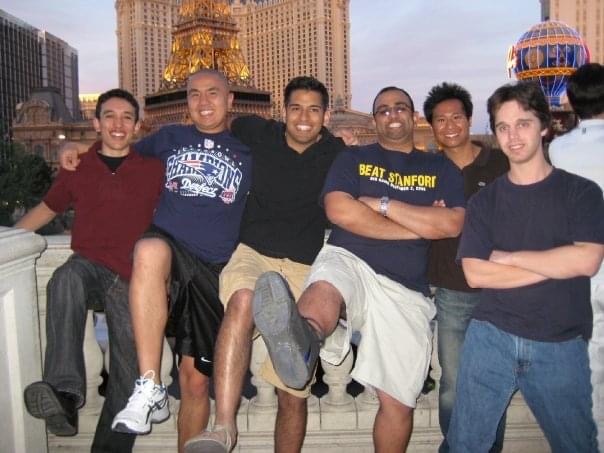
CAA: What advice would you give current Berkeley students graduating in uncertain times?
RW: It goes back to knowing what you can control. You can focus on the inputs, but if you optimize the outputs, it causes too much stress. It’s important that the past doesn’t weigh you down since you can’t change it. It’s also important that the future doesn’t weigh you down since there’s unlimited possibilities. Really, all you can do is ask yourself: where are you today? What’s the next step that you can take that gets you to your goal? All you have to worry about is, “Did I move in the right direction today?” If you compound that over a decade, you get really amazing results.
CAA: As an entrepreneur, you wear many hats. In your role as CEO at Doorstead, what activity or part of your job do you revel in the most?
RW: It has really changed since I first started. When we were only five people, the focus was on getting product-market fit. As we grew to twenty people, the challenge was to ensure everyone was going in the same direction. At fifty people, different teams were moving in different directions and the challenge was orchestration. At 150 people, I no longer have direct control over day-to-day operations. Instead, it’s about teaching people to make the right decisions, creating systems to achieve our goals, and developing our team to do more than they thought they could. It’s both exciting and daunting as I don’t even have control over the inputs anymore.
CAA: Is this the first company you have scaled to this size before it’s been bought?
RW: Yes, it’s my largest company. That said, it’s kind of like having kids, where each company has a different personality.
CAA: A couple of fun questions for you. What was your favorite place on campus and why?
RW: I remember playing Ultimate Frisbee a lot, so I love Memorial Glade. One of the things that I did as a TA was—and I don’t remember why I did this exactly—but I would take my students out to Memorial Glade to play Frisbee for 10 or 20 minutes, and then we would go back and have our session. For whatever reason, it opened up the audience. It was an icebreaker. People were more collaborative, discussing things, and formed friendships. That was something that I really liked, playing Frisbee, so I was able to bring that into my students’ lives as well. It was really fun to see.
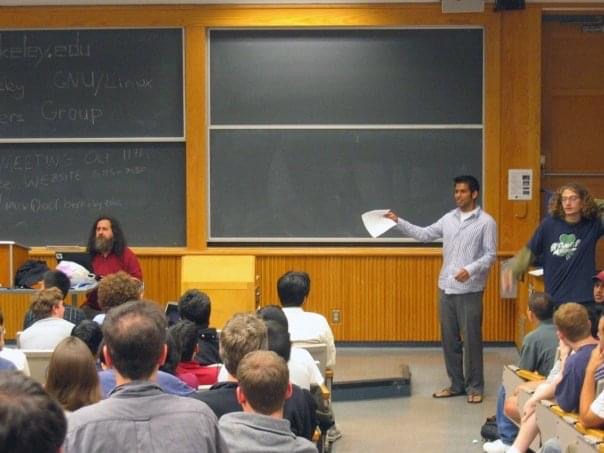
CAA: What were you teaching as a TA?
RW: I taught a handful of classes: Structures and Interpretation of Computer Programs, CS 61; Data Structure, CS 61B; and Artificial Intelligence, CS 188.
CAA: What is something that you do outside of work?
RW: These days I try to write for two to four hours a week. I exercise at least three to four times a week. But mostly, I have two young kids; I have a four-and-a-half-year-old and a one-and-a-half-year-old, which keeps me very busy. If I’m not at the office, I’m running around to do errands for my son—he is the CEO at home.
CAA: What did you like most about being on the Board of Directors for the alumni association?
RW: The people. Hearing each person’s story was inspirational. The board is so passionate about what they do.
CAA: How did you apply? Did you know about the board of directors? How were you approached?
RW: I saw a targeted Facebook ad and it worked. I applied and the rest is history.
Transcribed by Noa Berzon
Get involved with the Cal Alumni Association. Volunteer with one of CAA’s programs and build meaningful experiences for alumni and students.










